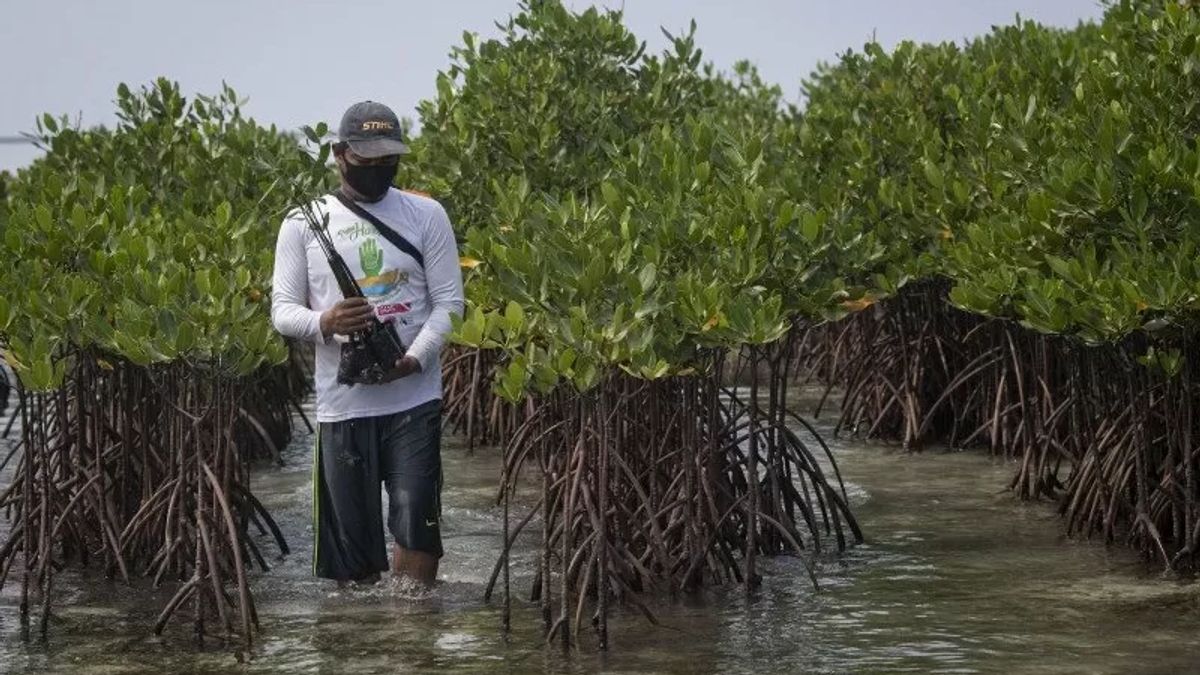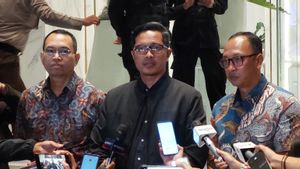JAKARTA - The National Research and Innovation Agency (BRIN) said mangrove trees or mangroves have the potential to be able to mitigate, and adapt to the bad effects of the El Nino phenomenon.
"In order to prevent it directly, it is difficult, but it can be mitigated and adapted. For example, so that it is not too hot," said Researcher at the Main Ecology and Ecosystem Restoration Division, BRIN Suyadi, to ANTARA in Jakarta, Thursday, October 5, quoted by Antara.
According to him, this is because mangrove trees can supply oxygen (O2), and absorb high enough carbon dioxide (CO2), so that in the end they store carbon in the vegetation and soil.
He conveyed, from existing research, mangrove trees can store 1,023 mega grams of carbon per hectare.
"According to Donato's research, mangroves can store 1,023 mega grams of carbon per hectare," he said.
Suyadi referred to Daniel C. Donato's research to analyze the amount of carbon content in mangrove trees and published in 2011.
VOIR éGALEMENT:
In addition, he said, mangroves are different from land plants. He argued that even though the hot weather hit, mangrove trees would not be flammable, this was because the tree was still hit by the ups and downs of sea water.
"This mangrove is different from land plants, such as peat (land), when El Nino was very prone to fire," said Suyadi.
On the other hand, he said, referring to data from the Ministry of Environment and Forestry (KLHK) in 2021, the mangrove forest area in Indonesia is 3,364,080 hectares. This amount is equivalent to 23 percent of the world's mangrove ecosystem out of a total of 16,530,000 hectares.
According to the Meteorology, Climatology and Geophysics Agency (BMKG), the bad effects of the El Nino phenomenon are extreme drought, rising weather temperatures, forest and land fires (karhutla), and potential crop failure.
In addition, based on BMKG predictions, Indonesia experienced the peak impact of the El Nino phenomenon in August - September. Furthermore, the impact gradually fell and ended in February - March 2024.
The English, Chinese, Japanese, Arabic, and French versions are automatically generated by the AI. So there may still be inaccuracies in translating, please always see Indonesian as our main language. (system supported by DigitalSiber.id)















